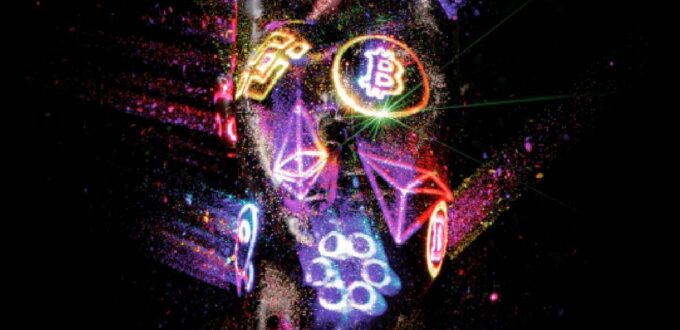Non-fungible tokens (NFTs) have made quite a buzz throughout 2021 and have quickly turned from something obscure and nerdy to one of the most desired items of digital consumerism and for the first time global searches for the term “NFT” appear to have surpassed that for “Crypto” as per Google Trends. While the crypto market has seen a dip in transaction volumes over the past few weeks, NFT sales have surged on marketplaces like OpenSea and with mainstream brands collectively contemplating an entry into metaverse platforms, it seems likely that consumer interest in NFTs is set to surge exponentially come 2022.
As first reported by CoinTelegraph, the surge in interest coincides with data provided by OpenSea, an NFT marketplace that controls a large chunk of NFT sales globally. As per data revealed in November, OpenSea sales volumes have shot up by a whopping 14,500 percent when compared to 2020 — amounting to more than $10 billion (roughly Rs. 75,176.91 crore). While OpenSea controls most of the NFT sales volumes, for the time being, it’s only a matter of time before non-Ethereum based marketplace burst on to seam.
Why are NFTs so popular?
Non-fungible tokens are unique digital assets, or collectibles, which are created using blockchain. Each NFT has its own unique identifier and metadata which distinguishes it from any other. Every NFT is cryptographically authenticated via the blockchain which guarantees that the owner is always known since they are recorded on the digital ledger.
NFTs are most often bought and sold using the Ethereum (ETH) cryptocurrency. But since they are unique digital assets, they do not have a precise equivalent in value to anything else.
Much like a rare gem is not equivalent to any other rare gem, since it is unique, similarly NFTs’ value is frequently determined via auctions or by the creators themselves.
But NFTs are much more than simple “digital assets,” whether they are artwork, music, photography, VR pieces, or anything else. A whole community has quickly sprung up around NFTs, made up of artists and creators who feel empowered by the possibility to offer their creations independently, and support themselves through that.
The exponential increase in the demand for NFTs is evident as consumer brands such as Nike and Adidas are making their own entry into the realm of metaverse NFTs. Celebrities such as Snoop Dog, Grimes, Steve Aoki, Mila Kunis, and Melania Trump are promoting their own NFT collections to the public too, furthering interest. Then there are NFT-based games such as Axie Infinity and Sorare that make it possible for players to learn about crypto and NFTs, as well as earn a small amount of money as a side hustle while playing video games.
But NFTs aren’t just a tool for self-promotion. Brands and individuals have figured a way to channel proceeds from NFT auctions which to non-profits or charities. Not only can crypto holders obtain fine pieces of art but in countries like the US, they can also deduct their donations against their ordinary income to save on taxes, resulting in a win-win for all.
Interested in cryptocurrency? We discuss all things crypto with WazirX CEO Nischal Shetty and WeekendInvesting founder Alok Jain on Orbital, the Gadgets 360 podcast. Orbital is available on Apple Podcasts, Google Podcasts, Spotify, Amazon Music and wherever you get your podcasts.
Cryptocurrency is an unregulated digital currency, not a legal tender and subject to market risks. The information provided in the article is not intended to be and does not constitute financial advice, trading advice or any other advice or recommendation of any sort offered or endorsed by NDTV. NDTV shall not be responsible for any loss arising from any investment based on any perceived recommendation, forecast or any other information contained in the article.

No Comments Yet